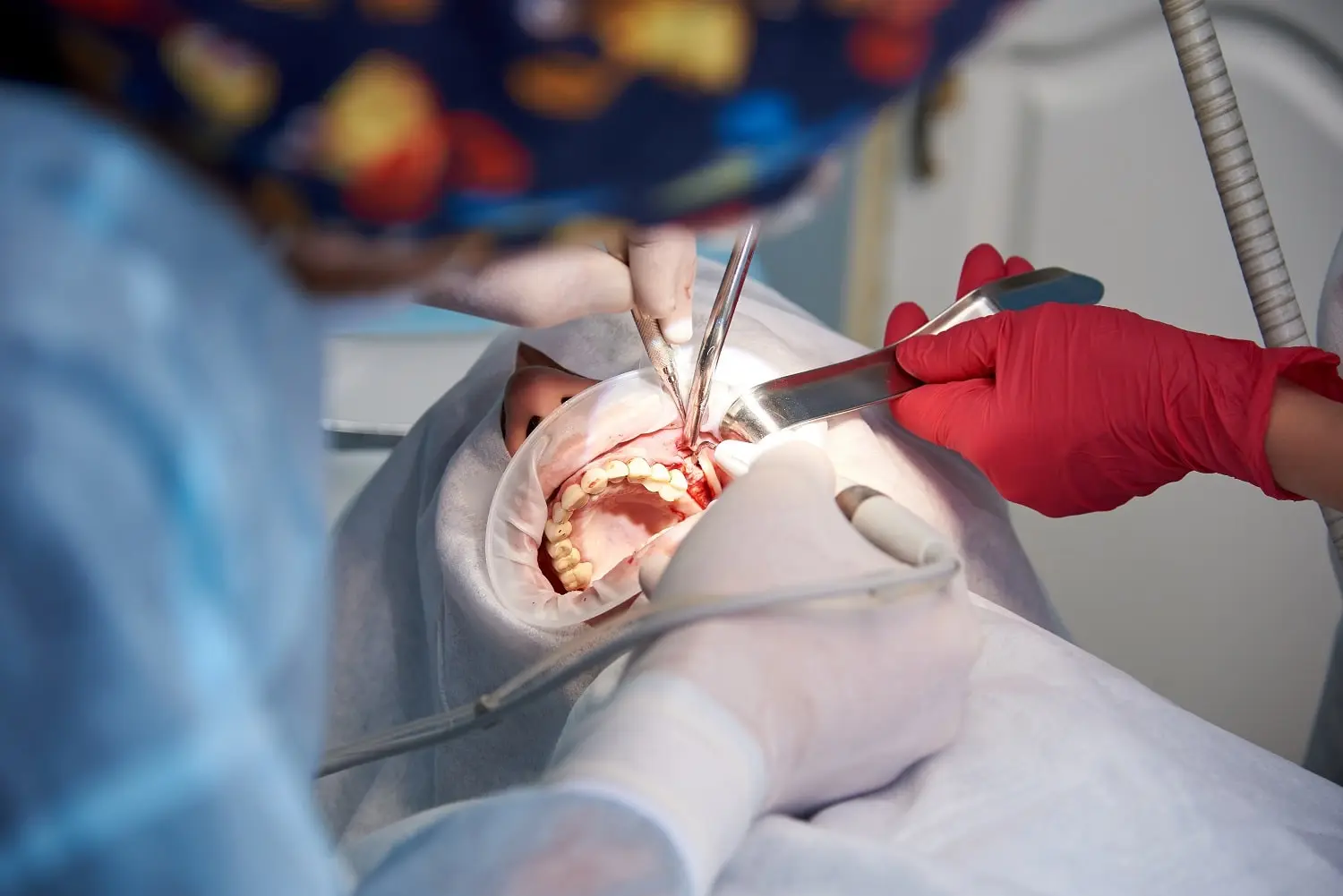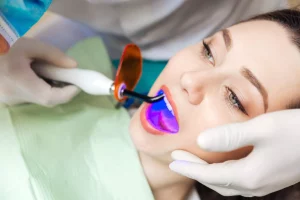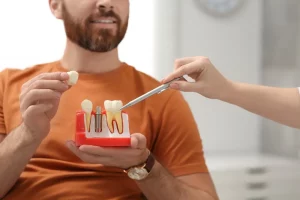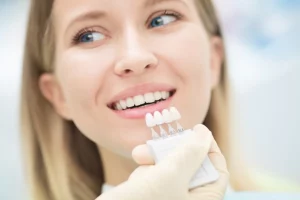Last Updated on: 11th November 2025, 06:35 am
When the extraction of wisdom teeth is required, some questions arise such as: What should I do? How long does wisdom teeth removal recovery take? and How do I return to my daily routine? Next, we will review part of this broad topic, with the aim of answering some of the concerns that users present after wisdom tooth surgery.
The third molar is the last tooth to appear, and its maturation sequence and age of eruption are variable in the population. At present, the age at which calcification begins has been not established. But, studies show that it starts at 8 years to 10 years for half of the crown and 12 years for the whole crown. Complete calcification of the roots does not occur until between 17 and 25 years of age. There is an advance of 1 – 2 years in the calcification of the upper third molars with respect to the lower ones.
When to Extract Wisdom Teeth
The process of extracting wisdom teeth is one of the most common surgical procedures in oral and maxillofacial surgery. This type of procedure is indicated in patients who have presented clinical situations such as infections, repeated discomfort during the eruption, orthodontic requirements, caries, malposition, or an associated pathology.

As a result, it is important that before undergoing a wisdom tooth extraction, you carefully read the information below.
The first thing to keep in mind is that it is a surgical procedure, done with local anesthesia. There is no incapacity or necessary hospitalization. After the procedure, you must follow the instructions given by your primary dentist or the oral surgeon. Below are the recommendations that as a team of professionals, we send to our patients to ensure a successful recovery.
Wisdom Teeth Removal Recovery Time
The success of any procedure, whether dental or medical, consists of following the care instructions offered by the dentist to the letter. The postoperative period begins after the surgery is completed for up to 72 hours. In the same surgical room, the immediate postoperative period begins; during this time, the inflammatory process must be controlled along with any bleeding. Controlling these conditions will generate a speedy recovery.

Don’t spit
Teeth are contained within a bone structure made up of a rich network of blood vessels and nerves. In the process of exodontia, this complex group is altered; the formation of a blood clot occurs to locally generate cell repair. It is important to keep this blood clot inside the bone, protecting the patient from complications such as alveolitis, a painful post-extraction inflammation that is divided into two stages:
- Dry socket: the condition of the bone without a clot and the presence of a violent and constant pain. It causes bad breath and discomfort when chewing, but there are no clinical signs such as fever or localized inflammation. In most cases, it prevents normal activity, especially sleep.
- Wet alveolitis: bleeding bone with abundant fluid and signs of inflammation and pain maybe associated with a foreign body reaction in the area, where the dental extraction had been completed.
Oral Cleaning
Do not brush your teeth, rinse your mouth, spit, or use mouthwash for the first 24 hours after surgery. Oral hygiene can be started after the first 24 hours. Be meticulous and careful around the surgical wound when brushing and gently rinse with warm salt water every two hours and after meals for a week.
Diet
After surgery, plan to rest for the rest of the day. Resume your normal activities the next day; but for at least a week, avoid strenuous activity that could cause the blood clot to break from the socket. Stay hydrated with plenty of water. Do not drink alcoholic, caffeinated, carbonated, or hot beverages in the first 24 hours. Eat only soft foods for this entire period. Start eating semi-soft foods when you can tolerate them. Avoid hard, chewy, hot, or spicy foods that can get stuck in the socket or irritate the wound.
Pain management
Pain is inevitable, but there are medications to control it. Your dentist will make recommendations. You can choose from over-the-counter options such as ibuprofen. If something stronger is needed, you may need a prescription.
Certain medications should not be used during recovery such as aspirin. Aspirin can make the wound bleed and can also slow down the clotting process. You can use ice packs on your cheeks to reduce swelling and control the pain.
When can I Resume Normal Activities?
It is recommended to take a day or two off work after your wisdom teeth removal surgery. You may drive immediately after the procedure if local anesthesia was used, but you should avoid driving for at least 24 hours if a sedative was used, or 48 hours if the procedure was performed under general anesthesia.

The time t a post-operative takes depends upon various factors including the work performed and patient care before and after the procedure, The third molars have always been a problem for patients, but their recovery requires a commitment on the part of both the dentist and the patient.
Contact us
If you have any questions about this or other topics, you can contact us at Channel Islands Family Dental as well as our page on Facebook. We look forward to your visit and we will make a timely diagnosis. Our dentists in Oxnard, Santa Paula, Ventura, Newbury Park, and Port Hueneme will be able to guide you toward the best treatment to take care of your health and give you back your best smile.
Bibliography
- Donated M. Oral Surgery. Pathology and technique. Barcelona: 4th edition, Elsevier Masson; 2014.
- Jung YH, Cho BH. Radiographic evaluation of third molar development in 6- to 24-year olds. Imaging Sci Dent. 2014;44:185-913
- Medeiros A, Dos Anjos M, Pereira K, Villar R, Dos Anjos A. Association between mineralization of third molar and chronological age in a Brazilian sample. Rev Odonto Cienc. 2010;25:391-4.
- Orceña Casierra, AA (2022). Types of surgical and post-surgical complications that occur in third molar extraction (Bachelor’s thesis, University of Guayaquil. Pilot School of Dentistry).
- BERINILeo; COSME Gay. 2nd Edition. 2003. Accidents and complications of extraction. Madrid Spain; Editorial Ergon. p.334-339
- Mayo Clinic (June 31, 2018). Wisdom tooth extraction. https://www.mayoclinic.org/tests-procedures/wisdom-tooth-extraction/about/pac-20395268
- NorrisTaylor. (Mar 7, 20419). How Long Does It Take to Recover from Wisdom Teeth Removal Surgery?. https://www.healthline.com/health/wisdom-teeth-recovery
- Eltayeb, AS, Karrar, MA, & Elbeshir, EI (2019). Orbital Subperiosteal Abscess Associated with Mandibular Wisdom Tooth Infection: A Case Report. Journal of maxillofacial and oral surgery, 18(1), 30–33. https://doi.org/10.1007/s12663-017-1074-z
- WebMD. (Oct 31, 2021). Wisdom Teeth Removal: What Adults Should Expect. https://www.webmd.com/oral-health/wisdom-teeth-adult














